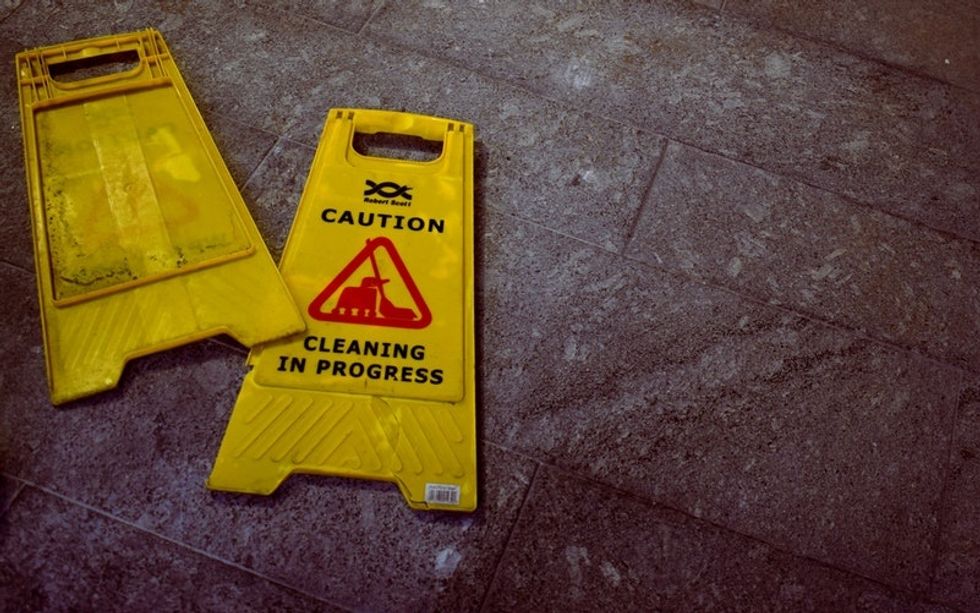To The Burnt-Out College Student, Keep Going
When you're struggling to keep afloat, keep going.
College is super hard. Between working, studying, and having a social life, it feels like a struggle to just keep afloat.
I understand. When you feel like your drowning and there's no way to stay afloat I understand that it feels like everyone else is doing just fine. I understand all the frustration, long nights in the library, and that feeling that you want to just throw in the towel. I understand that sometimes it's too hard to get out of bed because your brain is already filled with too much information to remember. I understand because I am also feeling pretty burnt out.
Sometimes picking up a pencil to do homework in the library feels like picking up a car. Sometimes I don't even make it to the library to study because I have no motivation to walk there. I'm in my junior year and my advisor has recently told me I am not graduating on time and basically my GPA sucks. I cried in her office and for two days after that. I work two jobs sometimes seven days a week. I spend my free time in the library trying to submit my homework on time. On my drive to my second job, I listen to a nutrition podcast about what's actually happening in the field. I've been drowning since the first day of classes. Keeping afloat is a daily struggle that I'm getting really tired of doing. But I'm going to anyway.
Everyone in college is feeling burnt out to some degree. Graduating "on time" doesn't happen for everyone. Sometimes your GPA sucks because you have a lot on your plate. Whether it's family issues, taking classes year round, a stressful job, lots of classwork, or just the stress you put on yourself, everyone is feeling burnt out. And I know you feel like you're the only one. Trust me sometimes I feel alone in that too. But after graduation, you'll be thankful for all the stress and anxiety you had in college. When you reach your goals in life you'll look back and be grateful things happened the way they did because you came out stronger.
It's okay to have days that you contemplate dropping out. But acknowledge that and keep going. Break up your work into manageable chunks and keep going. Buy a planner and write down all your assignments and the time they're due so you can time manage better and keep going. Clock into your job and do what you have to do and keep going. Keep going. Keep going. Keep going.





































The Best Way To Eat Around A Nutrition Major Is To Eat Whatever You Want
Now I don't want it to seem like I am not passionate about helping my friends or family achieve their nutrition goals. But only if they ask for it.
Eat whatever you want.
A lot of friends have made comments about being uncomfortable to eat in front of me knowing I am a nutrition major. At first, I was really taken back but then I realized what the real issue is here.
I think more people need to understand that your comments about other people's lives and choices aren't appreciated when they aren't asked for. Too many people put their two cents in on topics that they shouldn't. Food choices and diets can be a very sensitive topic for people and comments from friends that may happen to be nutrition majors doesn't make that any better.
Now I don't want it to seem like I am not passionate about helping my friends or family achieve their nutrition goals. But only if they ask for it. I don't want to generalize everyone in my major but there is a stigma around nutrition majors that they force information down your throat about your food choices. Which I understand because other people in my major have done that to me. I understand how uncomfortable that is. But I also understand that they have good intentions, they're just going about it wrong since you didn't ask for their opinion before they gave it to you.
I want you to know that I am not the perfect nutrition major. I don't have a food Instagram devoted to my vegan dinners and workout routines. I don't always cook and bake things from scratch. And I definitely eat way too many Oreos. And there's nothing wrong with that. I like to think I'm realistic (sometimes even a little lazy) but I'm in college and I understand that there is a struggle to eat healthier. I'm completely in love with my major and everything it stands for. But I'm not going to shame you into eating better. So yeah, order that second dessert while we're out to dinner. Just remember to ask for an extra spoon for me.